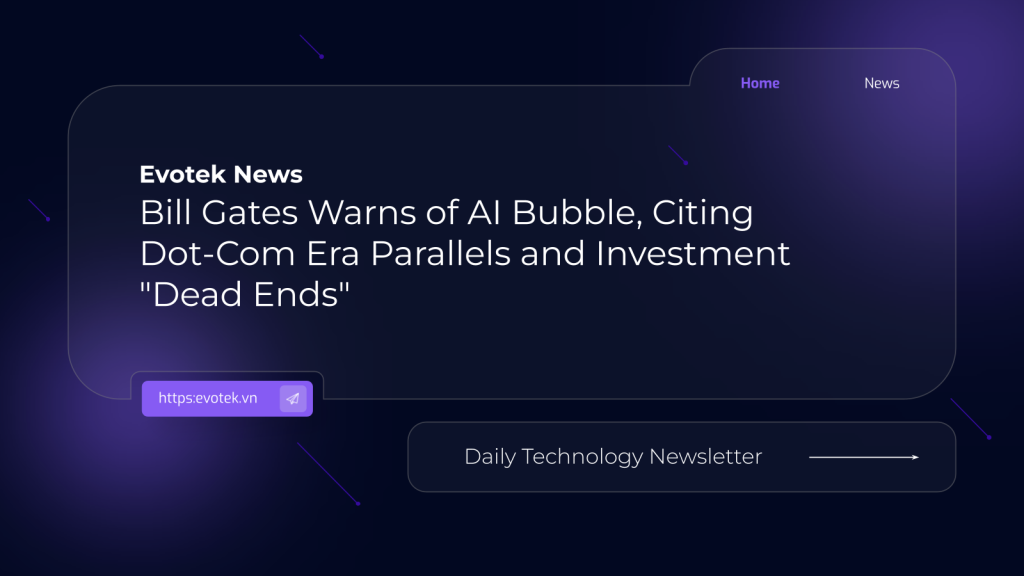Microsoft co-founder Bill Gates believes the artificial intelligence sector is experiencing an investment bubble, drawing strong parallels to the dot-com era of the late 1990s and early 2000s. While acknowledging the transformative potential of AI, Gates cautions against the current market frenzy, suggesting many investments will ultimately prove to be “dead ends.”
Speaking on CNBC’s “Squawk Box,” Gates clarified that the current situation is not akin to the speculative “tulip mania” of the 17th century, where prices for tulip bulbs soared based on pure speculation before a sudden crash. Instead, he sees a more nuanced scenario, one where underlying technology holds immense value, but market exuberance leads to significant overvaluation of many companies.
Gates highlighted the dot-com bubble as a more fitting comparison. During that period, the internet undeniably brought about profound changes, and some companies emerged as titans. However, countless internet-based startups were overvalued, lacked sustainable business models, or simply couldn’t keep pace, eventually leading to their demise and a broader market correction.
“Absolutely, there are a ton of these investments that will be dead ends,” Gates stated emphatically. He elaborated that while the creation of the internet was ultimately “very valuable,” the accompanying “frenzy” led many companies to burn through capital, make unsustainable commitments to infrastructure like data centers with exorbitant electricity costs, and ultimately fail.
Despite his warnings about the speculative nature of current AI investments, Gates remains a staunch believer in the technology itself. He described AI as “the biggest technical thing ever in my lifetime,” underscoring its profound, long-term impact on society and industry. The challenge, he suggests, lies in navigating the immediate investment landscape.
Gates’ perspective aligns with a growing chorus of voices expressing concern over potential overexcitement in the AI market. OpenAI CEO Sam Altman has also previously warned against excessive investor enthusiasm. Conversely, others argue that the current investor excitement is a fair reflection of AI’s truly transformative capabilities, suggesting that the “bubble” fears are exaggerated.
As the AI revolution continues to unfold, Gates’ insights serve as a critical reminder for investors and entrepreneurs alike: while the underlying technology promises immense value, prudent evaluation and a realistic outlook on market dynamics will be essential to distinguish enduring innovators from the inevitable “dead ends.”

 日本語
日本語 한국어
한국어 Tiếng Việt
Tiếng Việt 简体中文
简体中文